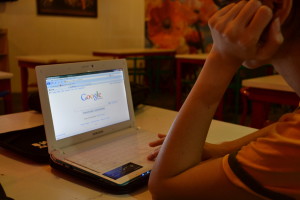
Courtesy of StockVault
The Atlantic reports on why we tend to cry on planes. You’re usually alone, secluded from the rest of the world, no contact with anyone (no email or phone). Why not have a good cry?
According to this article, 41% of men stated that they had “buried themselves in blankets to hide tears in their eyes from other passengers.”
According to Elijah Wolfson, there’s no scientific research on the phenomenon of crying on planes, but it’s become quite clear that this experience isn’t limited to his small social group. In researching the subject, he’s heard from mothers, young couples, sturdy middle-aged men, grandmothers, irony-obsessed millennials, and more; a 2011 segment on This American Life showcased writer Brett Martin’s tearful breakdown on a plane during the end of the Reese Witherspoon vehicle Sweet Home Alabama.
In 2011, Virgin Atlantic ran a survey asking customers to describe their on-flight emotional experiences. Overall, 55% of travelers said they had “experienced heightened emotions while flying,” and as the stunning statisitc previously mentioned, 41 % have also shed some in flight tears.
There are many theories about why humans cry, ranging from the biophysical to the evolutionary. One of the most compelling hypotheses is Jeffrey Kottler’s, discussed at length in his 1996 book The Language of Tears. Kottler believes that humans cry because, unlike every other animal, we take years and years to be able to fend for ourselves. Until that time, we need a behavior that can elicit the sympathetic consideration of our needs from those around us who are more capable (adults). We can’t just yell for help though—that would alert predators to helpless prey—so instead, we’ve developed a silent scream: we tear up.
“It’s the biological equipment used by infants to maintain proximity to their caregivers,” explains Ad Vingerhoets, professor of social and behavioral sciences at Tilburg University in the Netherlands, and one of the world’s leading experts in crying.
In adults, the issue becomes a bit more complicated. In a study published in 2000, Vingerhoets and a team of researchers found that adults, unlike children, rarely cry in public. They wait until they’re in the privacy of their homes—when they are alone or, at most, in the company of one other adult. On the face of it, the “crying-as-communication” hypothesis does not fully hold up, and it certainly doesn’t explain why we cry when we’re alone, or in an airplane surrounded by strangers we have no connection to.
While there have not been any peer-reviewed studies of crying on airplanes up to this point, there was study published in 2004 that considered grieving while driving, and in it, researchers found that grievers often “hold off grieving until they are alone and behind the wheel. They are free then from the distractions…this time by themselves provides them with the freedom for emotional processing and relief.”

